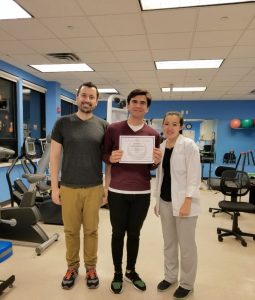In the process of raising a child, parents will have responsibilities ranging from defining morality to providing medical care. Through this lengthy journey, parents will face one hard truth: I don’t have all of the answers. For this reason, it’s important to rely on a network of information, and I’m here to play my part with today’s topic: Hypotonia.
So, what should you know about Hypotonia, and why should you even care? When we don’t understand something, we’re likely to fear it especially if it involves medical ailments. Through this fear, we’re unlikely to seek professional advice.
What happens when we refuse to seek professional insight? Realistically, the ailment continues to go unnoticed, and the effects will worsen for the individual. Therefore, ignorance is kryptonite during parenthood. On the other hand, knowledge is power.
So, what should you know about Hypotonia? In the newborn period of development, also known as neonatal, Hypotonia involves severe loss of muscle tone. When you think of muscle tone and its connection with movement, keep in mind the following: amount of tension or resistance in a muscle.
Due to abnormalities in the peripheral or central nervous system, Hypotonia causes the child to appear limp like a rag doll. This rag doll-like feeling, in your arms, is why floppy infant syndrome is another label for Hypotonia.
Before our muscles begin to contract, we’ll first receive signals from our nerves, but these nerves must receive their directive from the brain. In other words, the normal process of communication is like a successful game of telephone.
With Hypotonia unfortunately, there’s an interruption in this normal process. Instead of the signal moving naturally from one point to the next, there’s a break in this chain of communication because of damage to brain, nerves, muscles, etc.
For instance, if the brain directs the nerves to flex the forearm muscles, the child’s forearm will tighten naturally. Think of this child as someone gripping something tightly.
Now, once this child releases his or her grip, the natural response is for the forearm to loosen from this contracted state.
However, for a child with Hypotonia, the muscles will not respond as quickly to directions. In addition, because a child with Hypotonia will face challenges contracting the muscles, the muscles will appear loose.
Although Hypotonia can occur in adults, most detections happen at birth or before a child reaches six months of age.
So, what are some common signs of a child with Hypotonia?
Common signs to acknowledge
- Inability to maintain position for a long time (holding head upright for instance)
- Delay in sense of balance
- Unable to move independently
- While in your hands, child will feel limp as if able to slip instantly from your grip
- Difficulty sucking, chewing, and swallowing
- Little to no control of the neck muscles
- Severe delays in motor developmental progression such as crawling, sitting up, and walking
- Difficulties breathing (appears shallow)
- Arms and legs will hang straight as opposed to the normal flex (children will usually have slight bend in knees, hips, and elbows but not when Hypotonia is present)
- Extreme flexibility in joints as if double-jointed
- In adults, frequently falling or clumsiness
- In adults, difficulty lifting as well as reaching for items due to additional weakness in muscles
Although Hypotonia can occur without a cause, it can also arise due to lack of oxygen around birth, thus brain damage. Additionally, Hypotonia can happen due to spinal related injuries, nerve disorders, muscular diseases, and cerebral palsy.
So, how will a physician make a diagnosis? Within minutes after birth, doctors will perform routine checks for muscle tone. In addition, there are muscle function examinations, examinations for the nervous system, medical history queries, and other customized tests to determine a conclusion.
After a diagnosis confirms Hypotonia, how can I help? At the core of my practice, the aim is to create the greatest degree of normalcy.
Because each child is different, the objective is to customize treatment such as sensory stimulation, enhance fine motor skills, proper lifting techniques, and help improve a plethora of daily activities.
As a parent, you’ll experience one challenge after another, so my purpose is to lighten your burden as much as possible. With this particular diagnosis, you don’t have to feel alone because when you have a network of information, treatment is within reach.
At Occupational Therapy Concept, You’re Family. For a Free consultation, give me a call at (718) 285-0884 for further evaluation and customized help for Hypotonia.



